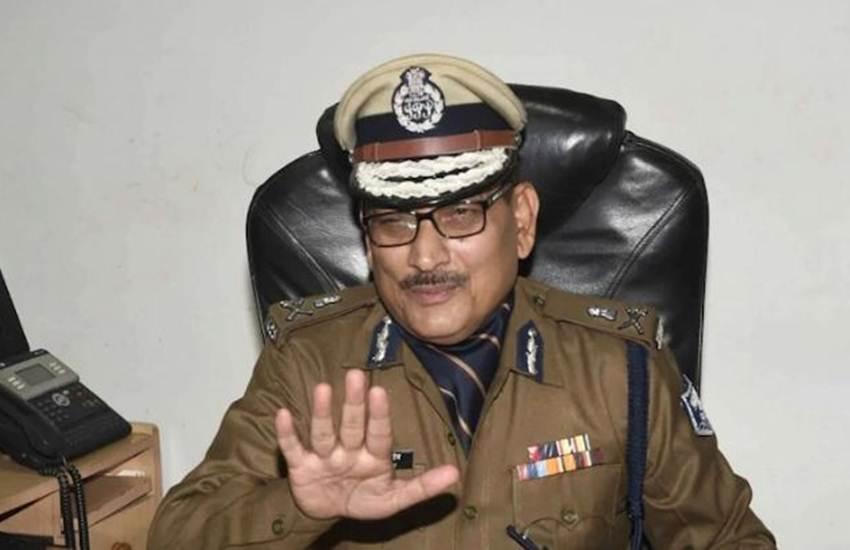As was expected, former Bihar Director General of Police, Gupteshwar Pandey, is all set for a future in politics; he opted for voluntary retirement days ahead of the Assembly poll announcement, and is now expected to contest as the JD (U) nominee from Buxar. In 2009 too, the 1987 batch IPS officer had shown his inclination to enter public life but his request for a VRS was turned down. The indication of his interest in the electoral arena first came to light when he proactively took up the investigation of the Sushant Singh Rajput case, by registering an FIR on a complaint filed by the late actor’s father, despite the fact that the Mumbai police was probing the matter.
The complex mystery is now being handled by the CBI, which was asked to take over the case by the Apex Court. Legal luminaries continue to debate whether this was legally permissible but had no choice after the Court gave its ruling, thus ensuring that the verdict was implemented both in letter and spirit.
However, Pandey courted controversy when he used inappropriate language for Rhea Chakraborty, the deceased actor’s live-in partner, stating that she had no “aukaat” to question the Bihar police. It was more or less clear in political circles that the Sushant Singh Rajput case had become an issue which all political parties in the state were raking up, with the purpose of encashing in on his popularity.
Thus, Pandey’s VRS did not come as an unexpected development as he prepares for his post-police innings in politics. To his credit, he has enjoyed a fine reputation in Bihar, and has been perceived as an officer who always had his ear to the ground. His debut, therefore, could assist him to achieve more success and thereby, in times to come, shape him as a principal player in public life.
Pandey is definitely not the first police officer, bureaucrat or a government functionary to enter politics. Former Mumbai Police Commissioner, Satyapal Singh, had similarly quit the IPS to successfully contest in 2014 from the Baghpat Lok Sabha constituency. (Baghpat was once represented by Chaudhury Charan Singh, the most influential Jat leader of Western UP, who briefly became the country’s Prime Minister.) Satyapal, in the two elections he has fought, has defeated both Charan Singh’s son, Ajit Singh and grandson, Jayant Choudhury. He was also a minister in the Narendra Modi government and continues to wield considerable influence in the Western UP hinterland.
Prior to him, Nikhil Kumar, former Delhi Police Commissioner, was elected to the Lok Sabha from Aurangabad in Bihar, which in the past was represented by his father, the late Satyendra Narain Sinha and later by his wife, Shyama Sinha. Kumar’s foray into politics was after his superannuation, having inherited the political legacy of his illustrious family—parents and grandfather. He subsequently went on to become the Governor of Nagaland and Kerala.
Yashwant Sinha, former Finance Minister, had an eventful career in the IAS and was the General Manager of the Delhi Transport Corporation, as well as a Joint Secretary in the Ministry of Transport. He had his share of problems in the bureaucracy, and finally was granted VRS after Rajiv Gandhi became the Prime Minister. Sinha was a close aide of Chandra Shekhar and later a major functionary in the Atal Bihari Vajpayee government. His grasp over foreign affairs and finance made him one of the most distinguished leaders of his time. His son, Jayant, succeeded him as the BJP representative from Hazaribagh.
Ajit Jogi was also in the IAS, being drafted into politics by Rajiv Gandhi. He rose to become the Chief Minister of Chhattisgarh and at one time was considered to be extremely close to the Congress interim president, Sonia Gandhi, though later there was a fallout. Likewise, Krishan Kumar from Kerala was viewed as an upcoming bureaucrat-turned-politician but faded away, after being first disillusioned with the Congress and then the BJP. K.J. Alphons, a 1979 batch IAS officer, is currently in the Rajya Sabha and was also a member of the Narendra Modi government. R.K. Singh, former Home Secretary, now a minister, at one time enjoyed Lalu Prasad Yadav’s patronage. He was the one who arrested L.K. Advani, when, in 1990, his Somnath to Ayodhya Rath Yatra reached Bihar, leading thereupon to the collapse of the Vishwanath Pratap Singh government after the BJP withdrew support to the Janata Dal.
Manohar Singh Gill was principal secretary to Prakash Singh Badal and later the Chief Election Commissioner. He was brought into the Rajya Sabha by the Congress and served as a minister in the Manmohan Singh government. Both Hardeep Singh Puri and S. Jaishankar, Union Ministers, were eminent diplomats.
Most recently, former Chief Justice of India, Ranjan Gogoi was nominated to the Upper House, soon after relinquishing the top office in the Supreme Court. Ajay Kumar, earlier with the Congress and now with the AAP, is a former IPS officer who also took VRS.
The short point is that Gupteshwar Pandey cannot be faulted for aspiring to have a future in politics, it being his fundamental right. However, what is objectionable to some of his critics is that he should have abstained from using the Sushant Singh Rajput case as a springboard to enter public life. Nevertheless, he is well aware that one has to have a rhinoceros’ thick skin to survive in this game. It is now for the people to make their call. Between us.

